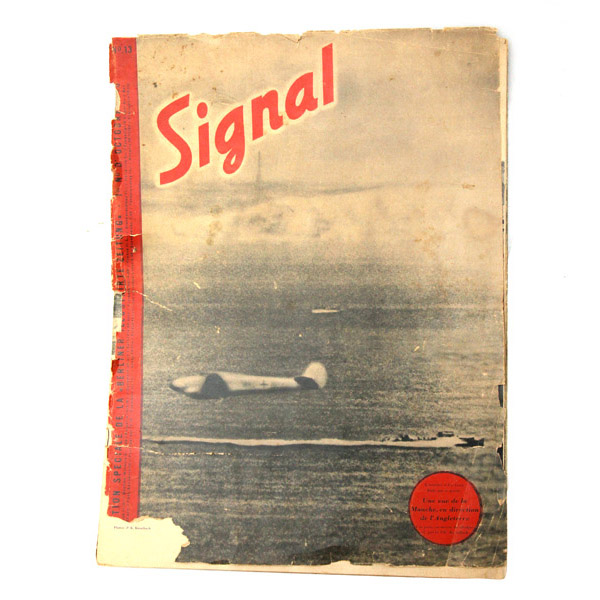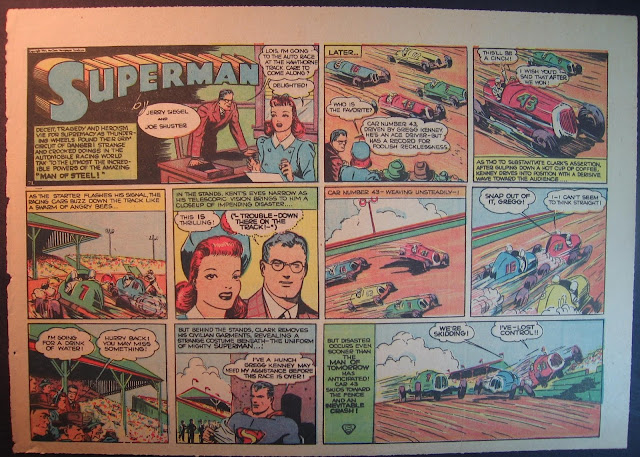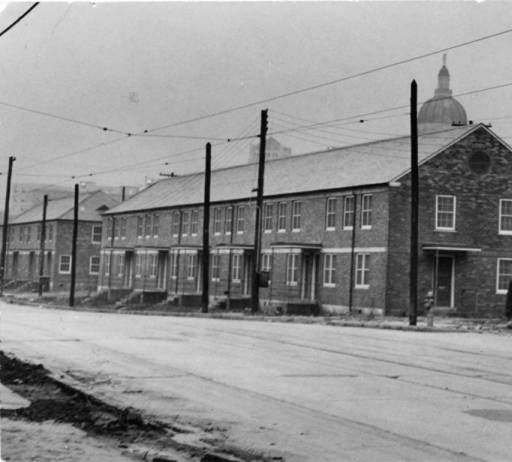Sunday 9 March 1941
 |
| Greek troops at Doliana, Arcadia, Greece, March 1941. |
The offensive by a dozen Italian divisions is designed on the left of the advance to break through the pass over Mt. Trebeshina north of the Vojussa. The Cagliari Division is to lead this assault, but its commander, General Gianni, is not well. This contributes to the attack losing impetus. On the right wing of the attack, the Pinerolo Division aims for the Qafa Lusit Pass. The most important area is in the center, where the Puglie Division heads toward Monastery Hill. This promontory is close to the front, but is heavily defended.
There is no subtlety to the attack; it is what the Germans might call a "cleaving stroke" in which 50,000 Italian troops will try to overcome the determined Greek defenders by sheer weight of numbers. The Greek First Army is dug in and knows the area well. The Italians make small gains of less than a mile during the day.
East African Campaign: South African troops continue advancing along the road to Mogadishu.
 |
| Fireboats at the West India docks, London. Some sources date this as 9 March 1941, others as some time in 1940. |
As part of Prime Minister Winston Churchill's "Battle of the Atlantic," RAF Bomber Command switches bombing target priorities in favor of U-boat bases and construction yards. Throughout the war, tension will arise over what parts of the German war effort are targeted - each service has its own preferences, such as tank factories, aircraft factories, and U-boat pens.
Australian Prime Minister Robert Menzies, visiting London, records his view of last night's big air raid on London:
Last night London has its first real blitz since I arrived, and I missed it [Menzies was at Churchill's Chequers home]. Bombs & incendiaries all round my hotel & the West End generally - Cafe de Paris, where a bomb cam right through into the ballroom. Curzon St. incendiaries on roof of No. 10 [Downing Street] & so on. There is no pretence of a military objective.Menzies also has dinner today with Sir Alan Brooke, in charge of the United Kingdom Home Forces. Brooke explains in detail the predicates for areas where conditions favor a German invasion of England:
- Adequate Luftwaffe fighter cover for bombers
- Restricted waters to minimize Royal Navy defense
Battle of the Atlantic: Admiral Lütjens continues taking his two ships in Operation Berlin, Gneisenau and Scharnhorst, west into the Atlantic. As it retreats from the shipping lanes, Scharnhorst comes across 6352-ton independent Greek collier Marathon. Scharnhorst takes the entire crew prisoner.
The Luftwaffe bombs local Convoys EN 83 and WN 95. British 4976-ton freighter Esmond suffers damage off Buchan Ness. There are seven casualties.
The Luftwaffe also bombs and damages a 1040-ton British freighter, Sylvia Beale, off of Dungeness.
Anti-submarine trawler 730-ton HMS Gulfoss hits a mine and sinks in the English Channel. There are 10 deaths and the skipper, A. Hill, is wounded.
Royal Navy minesweeping trawler 295-ton HMS Hatsuse hits a mine off Penlee Point. The captain beaches the ship at Cawsand Bay. The ship later is salvaged and repaired at Plymouth.
The Royal Navy's 1st Minelaying Squadron departs to lay minefield SN.68 B.
 |
| Signal Magazine, March 1941. |
Rommel's supply and troop convoys have been getting through from Naples, so he is rapidly building up his military strength.
- Recovery of ground to the British Operation Compass;
- An advance into Northern Egypt;
- Taking the Suez Canal.
The Royal Navy has been hard at work sweeping the Suez Canal of mines dropped by the Luftwaffe. While the entire canal is not yet clear, enough of it is for the Royal Navy to finally give aircraft carrier HMS Formidable the go-ahead to begin its transit to the Mediterranean. Formidable makes the entire passage and departs Port Said for Alexandria with an escort of two destroyers (HMS Juno and Griffin).
The Germans are famous for their Wolf Pack attacks, but a little-known fact from the war is that the British occasionally try the tactic, too. Today, four Royal Navy submarines (HMS Unique, Upholder, Upright and Utmost) position themselves astride the convoy route between Palermo and Tripoli about 50 km from Tripolitania in the Gulf of Hammamet. HMS Utmost spots a convoy and attacks, torpedoing and sinking 5683-ton Italian freighter Capo Vita. Another freighter, 6476-ton Caffaro, has mechanical issues and must return to Trapani.
Another Italian convoy of four freighters (Ankara, Kybfels, Marburg, and Reichenfels) makes port in Tripoli without incident.
A British troop convoy departs from Alexandria bound for Piraeus. The British soldiers are carried on Royal Navy cruisers HMS Bonaventure, Gloucester, and York.
Convoy GA-2 departs from Piraeus bound for Alexandria.
Vichy French submarine depot ship Jules Verne, escorted by destroyers Albatros and Tempete, passes through the Straits of Gibraltar without British interference.
In Malta, the first Luftwaffe attack is at 06:27. Four Bf 110s escort a lone bomber across the coast at wavetop level, evading the island's radar. They come in so low that one of the Bf 110s hits a ridge and crashes. The remaining planes strafe Ta Qali airfield, destroying a Hawker Hurricane and damaging two others. About two hours later, a single Junkers Ju 88 bomber drops bombs on the Grand Harbour area. Late in the afternoon, at 18:08, another lone Ju 88 drops four bombs near St. Clements Bastion. The first attack continues the Luftwaffe's gradual destruction of the defending RAF fighter forces which is becoming a real problem.
Spy Stuff: At around this time, the Japanese begin coordinating their spying efforts within the United States. Spying is to be done both by official Japanese government officials, such as embassy personnel and by ethnic Japanese with or without American citizenship. A meeting is held at the Japanese Embassy in which it is decided to request $500,000 to purse these spying activities. The Nichibei Kogyo Kaisha propaganda/espionage organization in Los Angeles is reorganized as the Nichibei Kinema Company, Inc., and it is suspected by the US government as acting as a front for other suspect organizations and firms. A spy ring in San Diego, a major naval port, also is organized around this time.
 |
| Superman Sunday No. 71, 9 March 1941. |
US Military: A flotilla led by heavy cruiser USS Chicago (CA-29) under the command of Rear Admiral John H. Newton, Commander Cruisers Scouting Force) arrives in Samoa. This is their original destination, but that may change. For now, the ships will anchor as the military authorities contemplate their next move.
China: The Western Hupei Operation continues. The Japanese 11th Army's 13th Infantry Division captures Kaolingpo. The Chinese defenders continue withdrawing toward Chunking.
Holocaust: The German Occupation authorities begin deporting the Jews of Oswiecim to Chrzanow in southern Poland. Oswiecim is the home to the Auschwitz concentration camp, and also is the location of synthetic oil and other plants which are to make use of slave labor.
French Homefront: The Vichy government continues restricting the freedom of Jewish citizens. It now requires government authorization before Jews can sell or rent their companies. The Germans have noticed that many Jews who wish to flee the Continent are apt to "rent" their companies to Gentiles for the duration of the conflict while they escape to England or the United States.
British Homefront: Labour Secretary Ernest Bevin gives a speech directed at women civilians. He appeals for:
The New York Herald Tribune on 10 March 1941 refers to this as a "triple-barreled appeal. He adds:
- 100,000 women to volunteer to work at munitions factories
- 50,000 former skilled shipbuilding workers (men) who have retired to return to their old jobs
- businessmen and others in non-essential jobs to take on unskilled positions in shipyards.
-
I have to tell the women that I cannot offer them a delightful life. They will have to suffer some inconvenience. But I want them to come forward in the spirit of determination to help us through.
 |
| Capitol Homes, public housing project, Atlanta, Georgia, March 9, 1941. Atlanta Journal-Constitution Photographs. |
A public defender, Alvin Moore, defends Miranda. The confession is used as evidence, to which Moore objects. The court overrules Moore and allows the confession as evidence. The jury convicts Miranda of rape and kidnapping, and the court sentences him to 20-30 years. Moore then hands to the case off to the American Civil Liberties Union (ACLU), which submits a petition for certiorari (appeal) to the United States Supreme Court.
In Miranda v. Arizona, the US Supreme Court holds that:
The person in custody must, prior to interrogation, be clearly informed that he has the right to remain silent, and that anything he says will be used against him in court; he must be clearly informed that he has the right to consult with a lawyer and to have the lawyer with him during interrogation, and that, if he is indigent, a lawyer will be appointed to represent him.This warning to persons in custody becomes known as the "Miranda Warning." Generally, the Miranda Warning is:
You have the right to remain silent. If you give up the right to remain silent, anything you say can and will be used against you in a court of law. You have the right to an attorney and to have an attorney present during questioning. If you cannot afford an attorney, one will be provided to you at no cost. During any questioning, you may decide at any time to exercise these rights, not answer any questions or make any statements. Do you understand these rights as I have read them to you?The Supreme Court sets aside Miranda's conviction due to its tainting by an unconstitutionally derived confession. However, the state of Arizona retries Miranda without using the confession, but he is convicted on other evidence. He once again is sentenced to 20-30 years in prison. Paroled after only a few years, Miranda makes a living selling autographed Miranda warning cards, and on 31 January 1976 perishes in a knife fight in a bar.
March 1941
March 1, 1941: RettungsbojeMarch 2, 1941: Oath of Kufra
March 3, 1941: Germans in Bulgaria
March 4, 1941: Lofoten Islands Raid
March 5, 1941: Cooperation With Japan
March 6, 1941: Battle of Atlantic
March 7, 1941: Prien Goes Under
March 8, 1941: Cafe de Paris
March 9, 1941: Italian Spring Offensive
March 10, 1941: Humanitarian Aid
March 11, 1941: Lend Lease Become Law
March 12, 1941: A New Magna Carta
March 13, 1941: Clydeside Wrecked
March 14, 1941: Leeds Blitz
March 15, 1941: Cruisers Strike!
March 16, 1941: Kretschmer Attacks
March 17, 1941: Happy Time Ends
March 18, 1941: Woolton Pie
March 19, 1941: London Hit Hard
March 20, 1941: Romeo and Juliet
March 21, 1941: Plymouth Blitz
March 22, 1941: Grand Coulee Dam
March 23, 1941: Malta Under Siege
March 24, 1941: Afrika Korps Strikes!
March 25, 1941: Yugoslavia Joins The Party
March 26, 1941: Barchini Esplosivi
March 27, 1941: Belgrade Coup
March 28, 1941: Cape Matapan Battle
March 29, 1941: Lindbergh Rants
March 30, 1941: Commissar Order
March 31, 1941: Cookie Bombs
2020

No comments:
Post a Comment